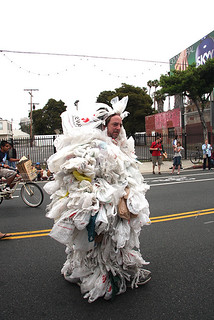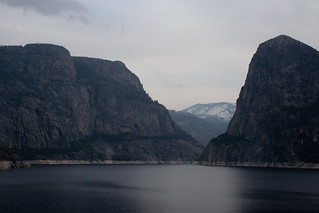(I’ll be on KALW Your Call at 10AM on Tuesday morning to talk about the recent legislative session. – promoted by Brian Leubitz)
 As legislative deadline draws near, bills aplenty
As legislative deadline draws near, bills aplenty
by Brian Leubitz
It’s that time of year again. The season for quickie news stories proclaiming one new law or another. With the legislative deadline coming at the end of the month for bills to get out of the Legislature, we will be seeing plenty more in the next few days. In fact, I’ll be on KALW’s Your Call on Sept. 2 at 10AM to talk about a few of the noteworthy bills. But before we get there, let’s take a look at a few already on the move.
Senate Bill 270 by Senators Padilla, de León and Lara, passed off the California State Assembly Floor yesterday on a 44-29 vote, after falling three votes short of passage earlier this week.
The bill now advances to the State Senate for final confirmation where it is expected to be taken up before the legislature adjourns on August 31.
“The State Assembly spent a great deal of time debating the merits of this issue over the last several months, and especially this week,” said Mark Murray, Executive Director of the bill’s sponsor, Californians Against Waste. “In the end, it was the reports of overwhelming success of this policy at the local level that overcame the political attacks and misinformation from out-of-state plastic bag makers.”
Moving to community colleges, you may have heard a bit about the mess that was CCSF’s accreditation process. Earlier this week, the accreditation commission had to acknowledge, after their attorneys failed to properly redact the information, that they did not take the recommendation of their site visit committee. That committee recommended probation, rather than the far more harsh “show cause” status. That set alarm bells off across the City and state, with the SF City Attorney suing the commission and a new law:
A bill that seeks to make the accreditation system for California’s 112 community colleges more transparent landed on the desk of Gov. Jerry Brown this week after receiving unanimous support from the state Senate and Assembly.
Brown has until Sept. 30 to veto or sign into law Assembly Bill 1942, which would require an accrediting agency to report accreditation decisions to the Legislature, such as last summer’s vote by the Accrediting Commission for Community and Junior Colleges to revoke City College of San Francisco’s accreditation.(SF Examiner)
One of the biggest complaints about the SF situation has been the fact that the commission has been so opaque. Few could actually understand the process, partially because they intentionally tried to make it that way. This bill, approved unanimously in both chambers, is a good step forward.
Finally, on the “sharing economy” front, Uber and Lyft dropped their objections to AB 2293, Asm. Bonilla’s insurance requirement bill. Bonilla dropped the requirement for drivers without paying customers to $200,000 from $500,000 while keeping the requirement at $1million when passengers are in the car. Without the objections from two sharing companies, the bill should sail through the Governor’s office.






